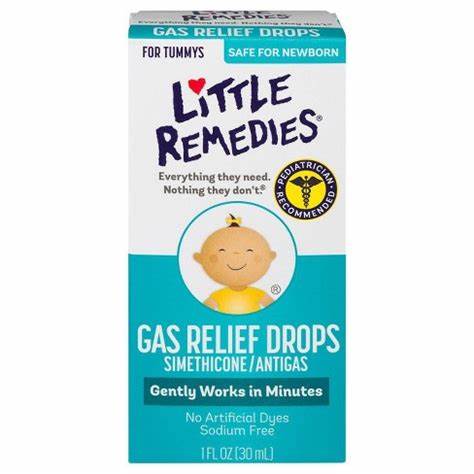Gripe Water vs. Gas Drops
- Baby Whisperers

- Aug 17, 2020
- 2 min read
Updated: Jan 19, 2021
Whether to give gripe water or gas drops is a very common question us pediatric nurses are asked.
Does gripe water really work? Is it better than giving my child medication? Does simethicone (gas drops) work better? We will dive into some of these pros and cons of gripe water and gas drops, and we will give you our opinion on the great debate.
Gripe Water
What is it?
Gripe water is an alternative medicine commonly used to treat upset stomach, gas, and sometimes colic. It is composed of dill seed oil and sodium bicarbonate and has a calming effect on baby’s tummy.
Pros: all-natural, helps with upset stomach
Cons: Too much gripe water can cause a shift of the pH balance of your baby’s stomach, causing more stomach discomfort. Gripe water can sometimes attract bacteria if not stored in a cool, dry place. Make sure to always follow care guidelines listed on the bottle.
Gas Drops
What is it?
Gas drops are composed of a medication, called simethicone, that breaks up gas bubbles in the stomach, making gas easier to pass.
Pros: Safe to use for most babies, excluding babies on thyroid medications. Easy to give in baby’s formula, water, etc., Small dosage so easier to give than gripe water.
Cons: Not all-natural
So, which one is better?
In short, this depends on your baby. Neither option is “better” than the other, it just depends on what you are treating. In general, we recommend trying more natural remedies before medications.
Start with gripe water and see how your baby responds. If you do not notice a difference, then switch to simethicone. We have seen babies respond well to both medications, so neither is better than the other. There is also no evidence or studies supporting one over the other.
If you think your baby is continuing to have issues with gas after trying these medications, consult with your pediatrician. If your baby starts to have other symptoms along with gas like fever, vomiting, diarrhea, inconsolability, etc, then also consult with your pediatrician.
We hope this helps! As always, like, comment, and share!
Jeri Ford, RN, BSN, CPN
Thanks to our sources:







Comments